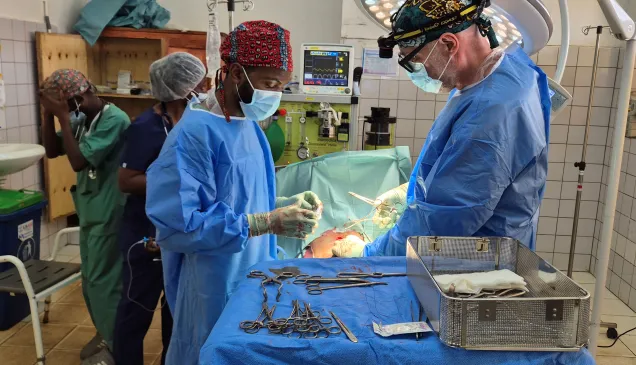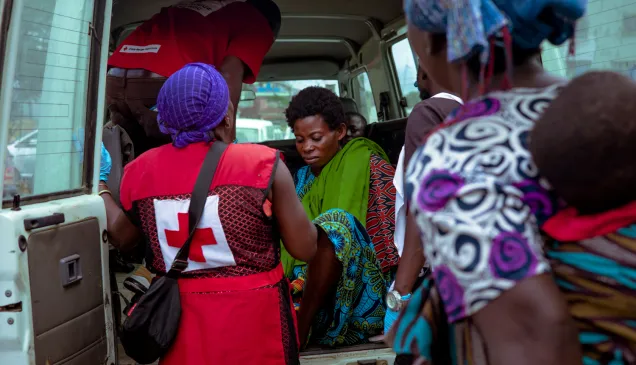Democratic Republic of the Congo: “I’m 36 – and I have 16 children”
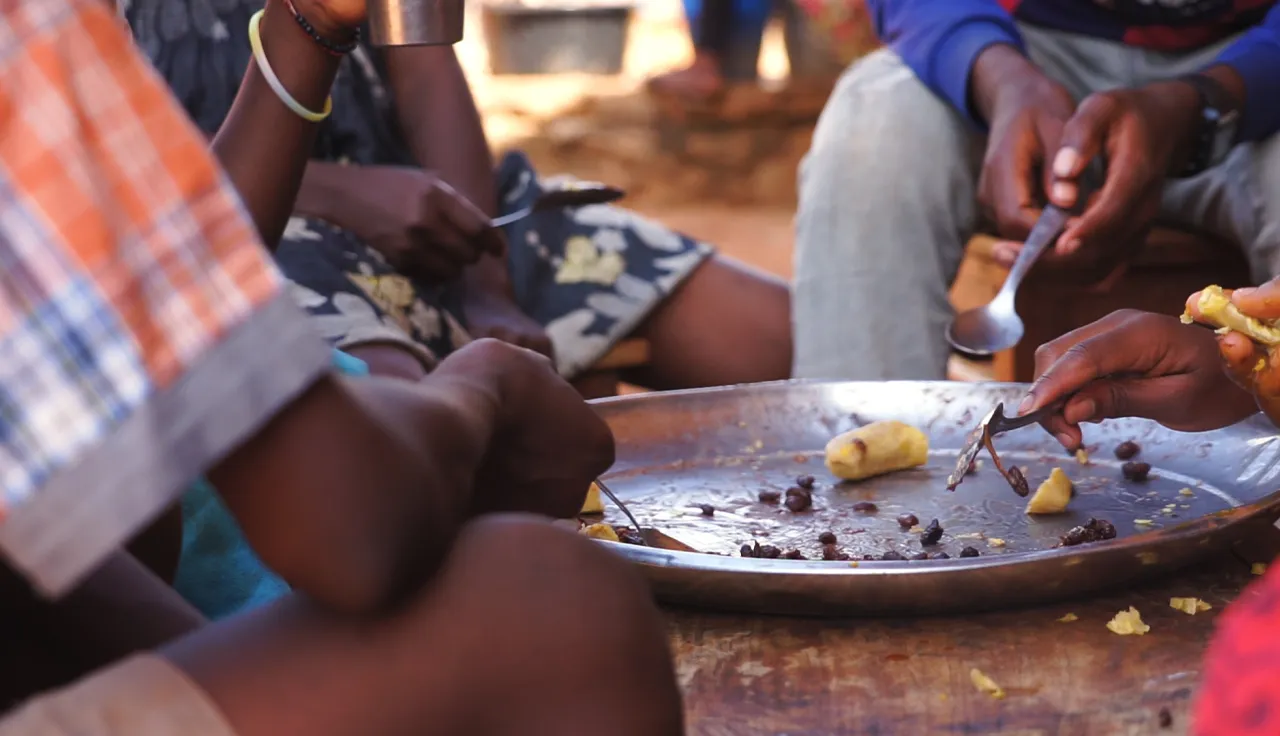
Hélène’s village was attacked by armed men, leaving more than a dozen children orphaned. Hélène took them in. Overnight, the now 36-year-old found herself the mother of a sizeable family.
As the sun goes down on the town of Beni, in North Kivu Province, Hélène is still busy in the kitchen. Soon, her 16 children will gather round the table for their evening meal of beans and plantain.
"My two biological children complain a lot, saying I don't give them enough attention. That really upsets me, because I want to be fair to everyone," she explains.
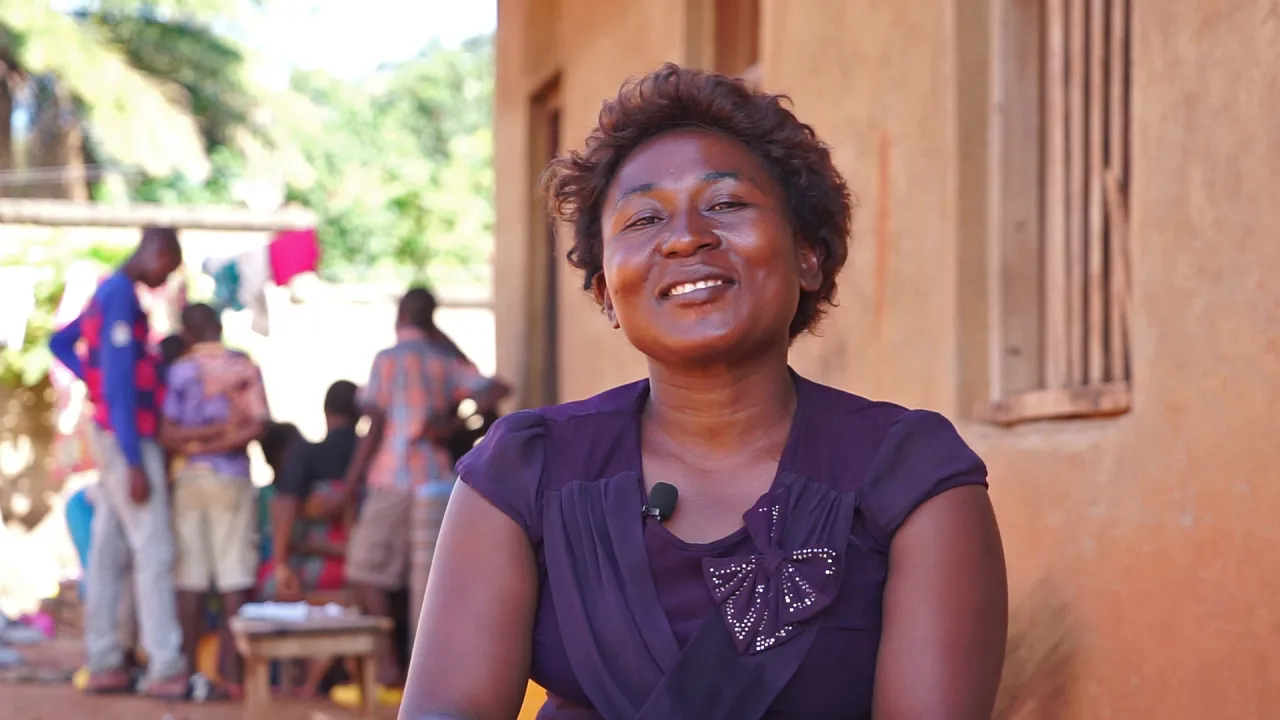
The size of Hélène’s brood changes but it’s always impressive!
On that fateful night, armed combatants burst into Mavivi, her village, killing, looting and burning down homes. Hélène and the other survivors fled to refuges, where the unaccompanied children huddled around her, distraught. Some of them, she knew, had been born of rape.
"They all lost their mothers in the attack. They gravitated towards me because they knew me," says Hélène. "Their mothers and I used to be part of an association that helped women, most of whom were victims of sexual violence, to rebuild their lives through small resilience-building activities. I was their agricultural extension adviser."
It wasn't easy, finding food for the children and constantly looking out for their safety. Not to mention having to spend some nights sleeping under the stars near a military base. Eventually, after two years, she decided to leave the village with the whole family and head for Beni, in search of a better life.
New life, new challenges
The town of Beni is 12 kilometres from Mavivi and has been largely spared from attacks by armed groups. According to the United Nations Office for the Coordination of Humanitarian Affairs (OCHA), as at 30 June 2022, some 40,000 people who had fled armed violence in the surrounding region had settled in Beni – a lively town with a diversified economy.
When they arrived there, Hélène and her many children stayed with her sister for six months. Then, with the help of a religious organization, she and her family moved to a bigger house. But feeding, clothing, and caring for the children remained a real challenge.
"To ensure we had enough to eat I had to supplement what we received through charity by doing daily weeding or harvesting work in privately owned fields," Hélène explains, practically wheezing. "I ought to have sent the children to school, but I wasn't able to. I couldn't afford all the school supplies."
In Beni, Hélène managed to track down family members of some of the children from her village and reunite them. She also gained a reputation in the area as someone who takes in "war" orphans. As a result, other children were brought to her.
"Only six of those I brought with me from Mavivi are still here, but others have been brought to me. Some were just left on my doorstep without a word. That was the case with this baby I've just taken in, who looks to be about two months old. Social services also send me kids when they don't have the space to accommodate them."
Hélène is currently raising 16 children, ranging in age from two months to 14 years. They include a 14-year-old girl who joined the family recently, after escaping her kidnappers. She was six months' pregnant when she arrived. Today, Hélène's imminent role as a grandmother is making her feel a little less despairing, despite all that has happened.
Long-awaited relief
The ICRC provided Hélène with psychosocial support to help her deal with the trauma of the massacre in her village.
"Hélène had flashbacks to the horrible suffering she had witnessed," explained Adèle Muhayirwa, a psychosocial worker at the Mangothe health centre. "She also had physical symptoms: headaches and severe intestinal cramps. And she was in a constant state of worry about how she would manage to take care of the children. So it took several sessions to begin to ease her suffering."
Helen also received cash assistance from the ICRC and took part it one of the ICRC's economic security programmes, which provided her with training to start and run a business (see the box below).
"When I received the money, the first thing I did was pay the medical bills for two of the children, and make a big meal for everyone. For the first time in four years, the children could eat and drink to their heart's content," she remembers.
Self-sufficiency despite the difficulties
The ICRC provides financial aid to victims of armed conflict to help them participate fully and lastingly in the social and economic lives of their communities.
From January to June 2022, 889 families (5,355 people) living in the east of the Democratic Republic of the Congo received this assistance. The region has suffered the effects of more than two decades of armed conflict and other violence.
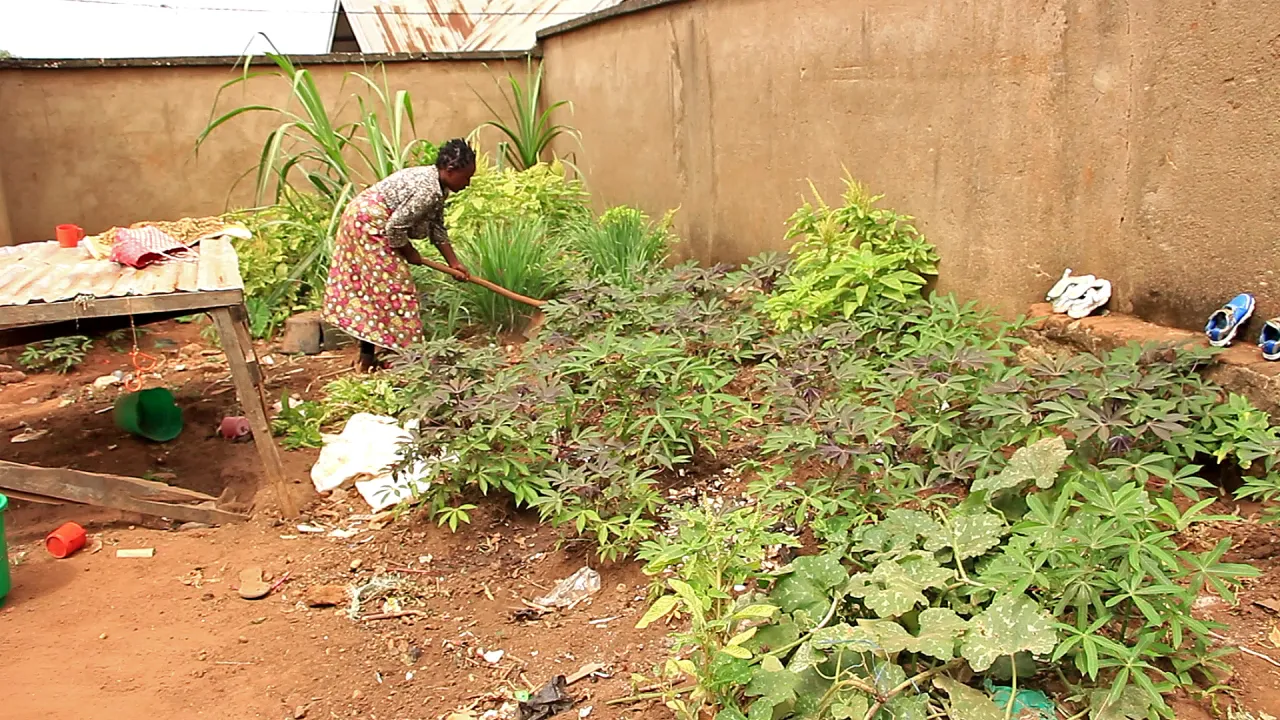
Hélène received psychosocial support and financial aid.
With her financial aid, Hélène was able to breathe a sigh of relief. But she's kept looking forward and quickly started a small business. Her shop sells items that are difficult to find in the area. It's the only one of its kind in the neighbourhood.
Hélène uses the profits to restock the shop and pay for food, health care and school fees and supplies. The cost of school has gone down since primary school became free throughout the country at the end of 2019. Now 12 of her children are enrolled in primary school and two in secondary school.
"We're alive today thanks to the people and organizations who have helped us. I give thanks to them and to Maman Hélène. May God bless them all!" says Elisé, 11.
Now that Hélène has become the sole head of her own impromptu orphanage, this indefatigable woman has also started raising goats and chickens. She hopes to get additional funding to buy some land. She's already gotten hold of seed and a fertilizer sprayer. She's determined to do her best to give the children a better future.
"I have an efficient technique for growing mountains of tomatoes and amaranth. With a little more help, you'll see what I can do," she says, with a determined smile.

